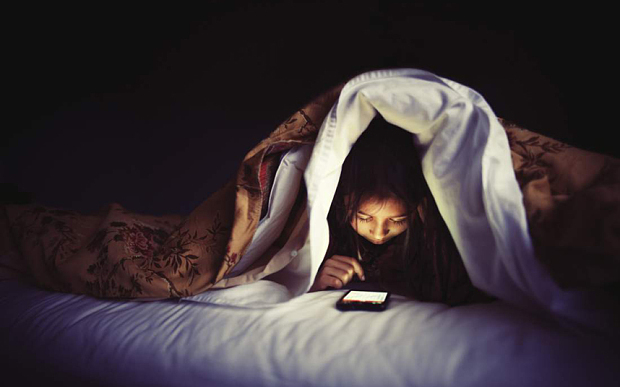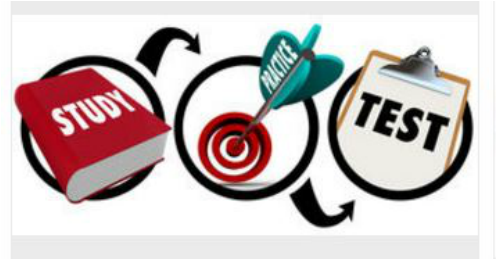|
The study, published in the Journal of Child Neurology, is the first of its kind to link nighttime instant messaging habits of American teenagers to sleep health and school performance.
"We need to be aware that teenagers are using electronic devices excessively and have a unique physiology," says study author Xue Ming, professor of neuroscience and neurology at Rutgers New Jersey Medical School. "They tend to go to sleep late and get up late. When we go against that natural rhythm, students become less efficient." The American Academy of Pediatrics reports that media use among children of all ages is increasing exponentially; studies have found that children ages 8 to 18 use electronic devices approximately seven-and-a-half hours daily. Ming's research is part of a small but growing body of evidence on the negative effects of electronics on sleep and school performance. But few studies, Ming says, have focused specifically on instant messaging. "During the last few years I have noticed an increased use of smartphones by my patients with sleep problems," Ming says. "I wanted to isolate how messaging alone - especially after the lights are out - contributes to sleep-related problems and academic performance." To conduct her study, Ming distributed surveys to three New Jersey high schools - a suburban and an urban public school and a private school - and evaluated the 1,537 responses contrasting grades, sexes, messaging duration and whether the texting occurred before or after lights out. She found that students who turned off their devices or who messaged for less than 30 minutes after lights out performed significantly better in school than those who messaged for more than 30 minutes after lights out.
0 Comments
Most students study by rereading their notes, PowerPoints, or books. The problem is that rereading is the most ineffective way of studying there is! Why? Because reading is visually taxing and is the hardest way in which the human brain learns information. Reading is also passive. It’s kind of like learning to play basketball while watching your coach play. It won’t work. Research shows that the number one way to study is to make a practice test. Try to predict what your teacher may have on the exam. Look at your study guide, pull out old quizzes, find important parts of your notes, and ask others in your class what they think is important. Then, create a practice exam.
GREAT RESOURCE https://quizlet.com/ Other Strategies Don’t cram. Instead, spread out three hours of studying over four days, 45 minutes per night. This works for two reasons. The first is that when you review the material multiple times you gain more familiarity with it. Secondly, and most importantly, sleep on it. That’s right, sleep helps you learn. Studies show that you remember more when you take 10-15 minutes to review what you studied or learned earlier in the day just before you go to sleep. This doesn’t mean that you should do all your studying just before bedtime, but it does mean that reviewing those notes again just a few minutes before bedtime allows you to process the information as you sleep. You will remember more on test day if you reviewed it more often and have those memories stored during your sleep. Thirty minutes of cardio a day, 4-5 days a week is an optimal strategy to improve learning. Aerobic exercise can improve focus as much as a low dose of a stimulant medication to treat ADHD. If you are a student athlete, study on the bus or the car as you travel home from an event. Consider studying right after practice, too. And if you don’t play a sport, run with your dog or shoot some hoops right before you sit down to do schoolwork. Most people need to sleep 7.5-9 hours per night in order to encode memories, but teenagers typically need more, about 9.25 hours. Thirty minute afternoon naps can help, because your brain actually goes into a sort of sleep pattern in the early afternoon. Be sure these afternoon siestas aren’t too long since extended naps can interfere with sleep at night. Breaks also help. In fact, studies show that students remember more when they have breaks between study sessions that when studying straight through for an extended period of time. Having downtime allows your brain to review information even when you don’t think you’re really processing it! |
Disclaimer: This website is for informational and educational purposes.
Any and all blog content represents a synthesis of empirical information found on the internet, of my own personal opinions, and my professional experiences. Nothing posted reflects or should be considered professional advice. Interaction with me via the blog does not constitute a professional or therapeutic relationship. For professional and customized advice, you should seek the services of a licensed mental healthcare professional. I do not assume liability for any portion or content of material on the blog and accept no liability for damage or injury resulting from your decision to interact with the website. Archives
October 2023
Categories
All
|

